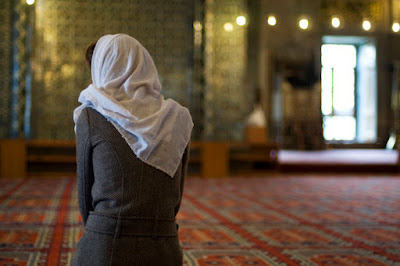Ramadan 2017 timetable UK: When is it, calendar, special offers and decorations
A record-breaking 88,000 Muslims gathered in Birmingham on July 6, 2016, to celebrate Eid al-Fitr.
The event, often known just as Eid, marks the end of the daily fasting through the month of Ramadan.
The month is about much more than fasting. It's also for spirituality, charity, reflection, resolutions and feeling closer to the Creator.
It also gives people an insight into what the poor and needy feel like when they have no food or water. This a time for Muslims to show their gratitude to Allah.
In 2017, the General Election as well as the GCSE and A-Level exams will all fall during Ramadan, creating an additional challenge for campaigning Muslim politicians and for Muslim students.
So what are the dates of Ramadan in 2017? Why does the date vary and is anyone exempt from fasting?
When will Ramadan be in 2017?
Ramadan is expected to start on May 27, 2017, and last until June 24, 2017.
The fast is broken with the celebrations of Eid al-Fitr on June 25, 2017, as the next month (Shawwal) begins.
Why does the date vary?
The Islamic calendar is based on the cycle of the moon, but the Gregorian calendar largely used in the western world is based on the sun.
Because the two calendars don’t align exactly, the Islamic dates move back by 11 days a year.
So how is the date worked out?
In Islam, the start and end of month is based on a sighting of the first crescent of the new moon at Mecca, in Saudi Arabia.
Mecca is Islam’s holiest city because it’s the birthplace of the prophet Muhammad and the place where the Qur’an or Koran was first revealed to him.
But, of course, the crescent moon may not always be visible - because of its position in the sky or because of cloudy weather.
It has been decreed since March 2002 that if the first crescent of the new moon is seen above Mecca on the 29th day of the existing month, then Ramadan has ended and the next day will be the start of the new month.
If the moon is not seen, the current month will go on another day, lasting a total of 30 days. This occurred in 2016, when the moon was not sighted on July 4 and therefore Eid was not the next day but instead on July 6.
So the date of Ramadan - and, therefore, of Eid al-Fitr at the start of the next month - is not known until a day or so before it is expected to happen.
Before 2002, slightly different rules were used for determining the start of the month but were still based on the moon.
Some governments and other organisations instead look at astronomical charts so they can plan further ahead.
In Saudi Arabia, the Institute of Astronomical & Geophysical Research of the King Abdulaziz City for Science and Technology (KACST), uses modern science to work out the Umm al-Qura calendar - this is used by the country’s government for setting the date of its policies, events and other civic matters. It has already deterrmined Ramadan to be from May 27 to June 24.
That calendar is also used by the Islamic Society of North America (ISNA), the Fiqh Council of North America (FCNA) and the European Council for Fatwa and Research (ECFR).
But the religious authorities in Saudi Arabia still base their decisions on the first sighting of the lunar crescent.
What happens during Ramadan?
Ramadan is a month of fasting.
Muslims must abstain from food, drink, smoking and sex each day, between an early-morning meal (suhur) and a night-time meal (iftar).
While fasting, they have more time to focus their minds and activities on prayer and spiritual reflection, including greater study of the Qur'an.
Ramadan was particularly tough in 2016 because it was in the period leading up to (and including) the longest day of the year.

Comments
Post a Comment